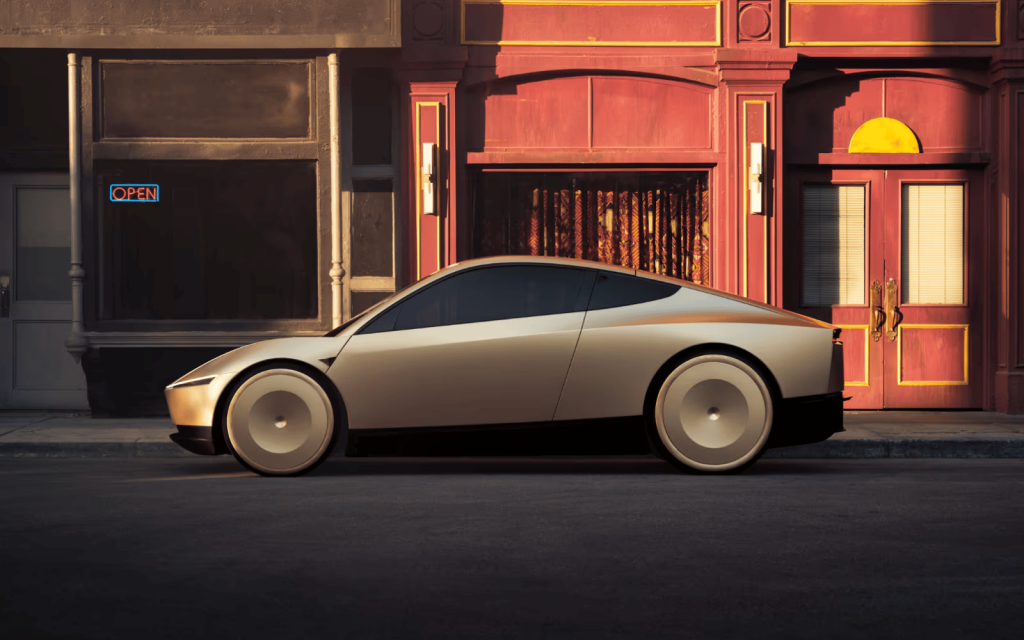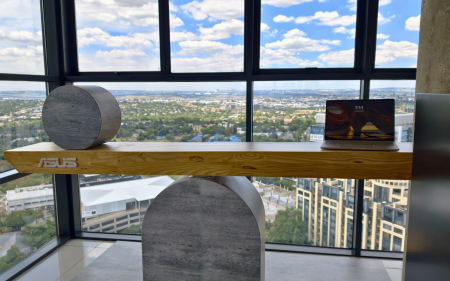From Cybertruck to Cybercab — Tesla, the electric vehicle company headed by Elon Musk, has made its autonomous taxi official. A prototype for the new EV was shown at Tesla’s We, Robot event held last night at Warner Bros. Discovery’s California studios, along with an updated look at the Optimus robot and a new Robovan autonomous transport vehicle.
Catching a Cybercab
Of the three products revealed, the Cybercab is the most likely to cross paths with South African drivers (any day now, Elon). It’s unusual in that it’s designed with similar lines to the controversial Cybertruck but with a few more polygons in its mesh. There’s also no steering wheel or any way to navigate the car but it does feature inductive charging instead of sockets — it’s a bit like a Roomba in that sense. It’ll use cameras and AI to get from place to place, carrying two passengers at a time.
It’ll also be a working vehicle — buyers will purchase and use the cars to ferry passengers around, probably in supported cities at first.
It should be fairly affordable if the projected price for one remains constant. Buyers can expect to pay less than R550,000 ($30,000) based on the current plans for the vehicle. South African buyers… probably won’t want to do that, since it’s a) be significantly more expensive here and b) probably won’t work as intended.
The autonomous taxi was shown in prototype form at the event but the design should be fairly final. There are supposed to be more than twenty of the vehicles roaming around but it isn’t set to go into production soon. Speaking at the event, Musk said he expects the Cybercab to begin production in 2027. He also added that he is often “highly optimistic with timeframes” so it’s also possible that the autonomous taxi will be delayed as challenges crop up.
The Robovan is a similar concept to the Cybercab, except it’ll fit considerably more cargo or up to twenty people at a time. That one could do well in South Africa, which already has a similar, human-operated transportation system in wide usage.




